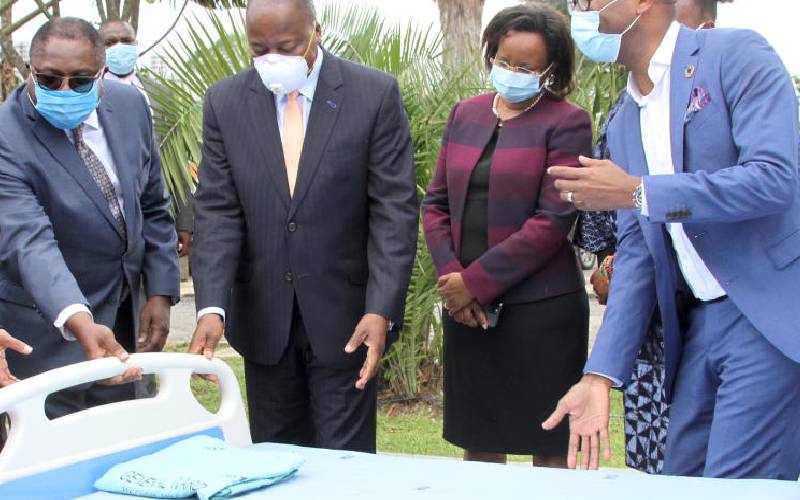×
The Standard e-Paper
Fearless, Trusted News

Health Cabinet Secretary Mutahi Kagwe (second left), PS Susan Mochache (second right), Amref Health Africa CEO Dr Githinji Gitahi (right) and Rockefeller Foundation Managing Director William Asiko (left) when they received hospital beds donation from Rockefeller yesterday. [David Njaaga,Standard]
Each of the 47 counties will have a laboratory with the capacity to test for Covid-19 in two weeks, the Ministry of Health says.